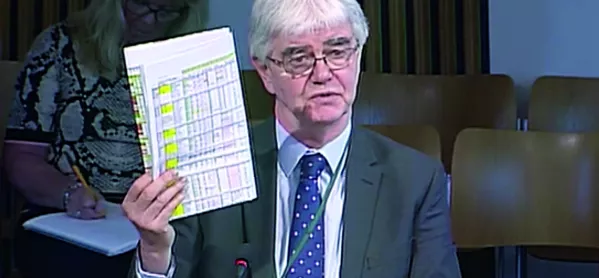Bear with us as we tell you a shaggy dog tale that explains this entry into Tes Scotland’s 2019 people of the year.
Education secretary John Swinney is probably more likely to be compared to a strait-laced accountant than an airy-fairy hippie.
Yet one of the more leftfield insults hurled during the debate that has dominated Scottish education this year - the argument over whether the curriculum in S4 has narrowed - involved Mr Swinney being accused of behaving like an “old hippie” by Scottish Labour’s Iain Gray.
Gray quipped that Swinney was effectively saying, “Hey man, let the children study whatever they like,” to senior pupils.
Top 10: Tes Scotland’s top 10 people of the year
Jim Scott’s research 2016: Scottish curriculum narrows and attainment drops under new regime
Scott’s research in 2017: Attainment rate falls as new qualifications struggle for credibility
Scott’s research in 2018: ‘Inequity for students’ as secondary subject options narrow
Research critique: What does data really say about Scotland’s curriculum?
So what led to this slur against first minister Nicola Sturgeon’s “safe pair of hands”? Arguably, it stemmed from headteacher-turned-academic Professor Jim Scott, of the University of Dundee.
A narrowing curriculum?
Back in 2015 - after he retired as head of a Perth secondary - Professor Scott started to explore whether under Curriculum for Excellence pupils were actually getting access to fewer subjects in S4 and whether this was having a knock-on effect on attainment.
He concluded that they were, indeed, studying fewer subjects and that attainment was suffering. When it came to modern languages, the situation was “near critical”.
Every year Professor Scott continued to produce his figures until, in February this year, the Scottish Parliament’s Education and Skills Committee decided to investigate and started its inquiry into subject choice in schools.
The most up-to-date version of Scott’s research shows that around half of Scottish school pupils study six subjects in S4 - when in the past the norm was to offer seven or eight - and attainment has dropped by a third at national qualification levels three to five.
There are some who question the quality of Scott’s work. They argue his research takes no account of the falling pupil roll and also point out that one of the original aims of Curriculum for Excellence was to allow pupils to bypass exams like Nationals if they were clearly going to go on and secure Highers. Of course, if schools embrace that then the result will be a drop in attainment.
However, whilst Scott’s critics say his methods are overly simplistic, some remain concerned that the curriculum may be narrowing in the senior phase.
With the pressure mounting, therefore, the Scottish government announced in September that there would be an independent review of the senior phase of Curriculum for Excellence. Its publication next summer could be a defining moment for Scottish education in 2020.
Professor Scott, as a lightning rod for one of the most heated debates over Scottish education in 2019, is one of Tes Scotland‘s people of the year.




